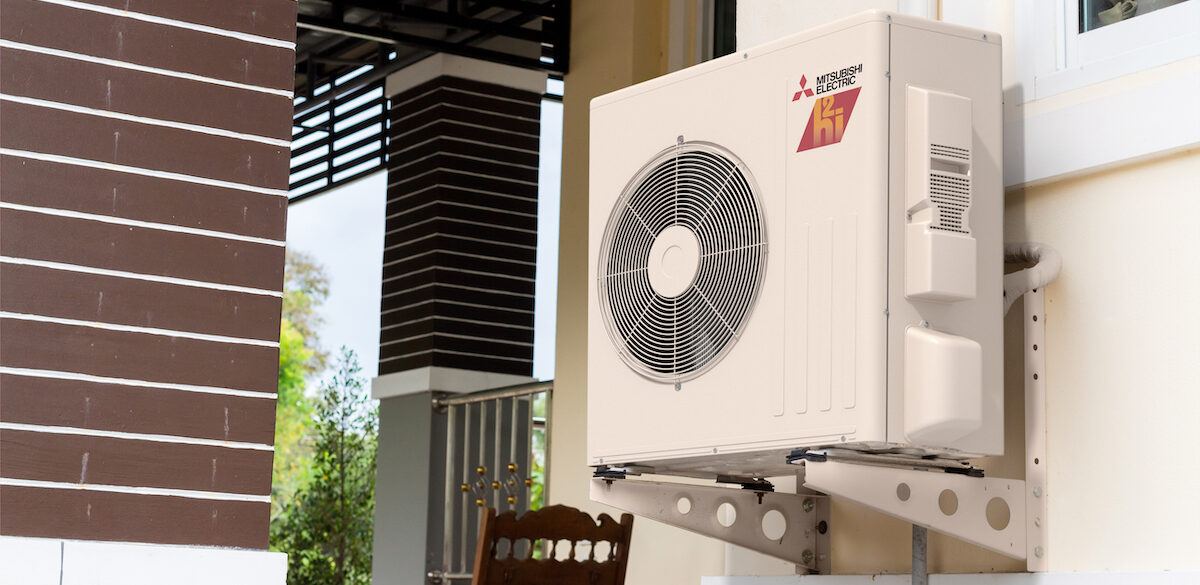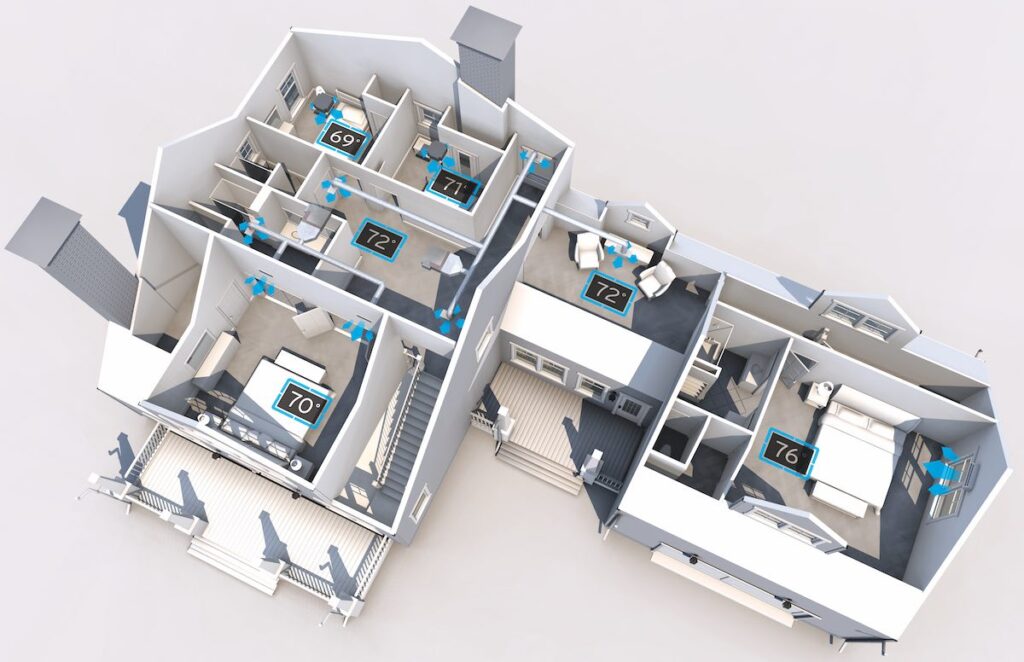
When it comes to heating and cooling your home, Mitsubishi electric mini-split air systems are a smart and efficient option to consider. They offer a range of benefits over traditional ducted systems, making them a great choice for homeowners who are looking for a better way to regulate the temperature in their home.
Energy Efficiency
Ductless mini-split air systems are incredibly energy-efficient, using only the energy that is needed to heat or cool a specific area. This is in contrast to ducted systems, which often lose a significant amount of energy as air travels through the ductwork. The design of the system also plays a role in its energy efficiency, with properly sized and placed units ensuring that energy is used efficiently. It’s important to note that bigger is not always better when it comes to mini-split systems, as oversized units can lead to inefficiency and higher energy bills.
We will discuss energy efficiency later in this post
Zoned Comfort
One of the biggest advantages of ductless mini-split air systems is their ability to provide zoned comfort. This means that different rooms or areas of your home can be set to different temperatures, providing absolute control over the comfort level in each space. This is especially beneficial for families with different temperature preferences, as each person can customize their own space to their liking. Additionally, mini-split systems allow for quick and easy temperature adjustments, making it easy to maintain a comfortable environment throughout the day.

Easy Installation
Ductless mini-split air systems are incredibly easy to install, requiring no ductwork and minimal disruption to your home. This makes them an ideal option for homeowners who want to upgrade their heating and cooling system without undergoing a major renovation. In many cases, installation can be completed in just a few hours, allowing you to start enjoying the benefits of your new system right away.
Quiet Operation
Ductless mini-split air systems are known for their quiet operation, making them a great choice for bedrooms, home offices, and other areas where noise can be a distraction. The indoor units of these systems are designed to operate at low sound levels, ensuring that you can enjoy a comfortable environment without any distracting noise.
Cloud Technology
Kumo cloud technology is a cutting-edge feature offered by Mitsubishi Electric that allows homeowners to control their mini-split system from anywhere, using a smartphone app. The app is easy to use and provides total control over the system, including the ability to adjust temperatures, set schedules, and more. The app also integrates with both Alexa and Google, making it even easier to manage your mini-split system.
Aesthetic Appeal
Finally, ductless mini-split air systems offer an aesthetic appeal that is hard to beat. The units are sleek and modern, with a minimalistic design that blends seamlessly into any home decor. They are also space-saving, requiring only a small amount of wall space for installation. This makes them a great option for homeowners who want to improve the comfort of their home without sacrificing style.

Back to the energy efficiency conversation.
It is important to note that there are many factors determining the energy efficiency of your HVAC system.
- Design/Application: The efficiency of an HVAC system largely depends on its design and implementation. With countless combinations of HVAC equipment and various technological approaches, the arrangement and application of the system elements play a crucial role in its efficiency. Even the most fuel-efficient equipment could perform poorly if not appropriately integrated into the system.
- Equipment Efficiency: Interestingly, some of the most energy-efficient systems use wood as a fuel source. For instance, Napoleon, a leading Canadian HVAC manufacturer, develops high-tech wood-fired systems that often surpass electric alternatives in SEER ratings. Thus, the efficiency of individual equipment within a system can be more impactful than the fuel source itself.
- Power Provider: The geographic location of a system significantly affects its economic efficiency. For example, the energy provider Avista offers different rebates for fuel conversions in Washington State and North Idaho, reflecting the varied cost-effectiveness of gas and electric power in these regions. Two similar homes in the same neighborhood could experience a $500/month difference in energy costs due solely to their choice of fuel source.
- Local Climate: Lastly, the efficiency of an HVAC system is also influenced by the local climate. A system operating efficiently in a mild climate like Seattle may struggle in a colder environment like Coeur D’Alene. Similarly, HVAC performance may vary significantly between a humid city like Houston and a more temperate one like Portland.
In conclusion, ductless mini-split air systems offer a range of benefits over traditional ducted systems. They are energy-efficient, provide zoned comfort, are easy to install, operate quietly, and offer an aesthetic appeal that is hard to beat. With the added benefit of Kumo cloud technology, homeowners can enjoy total control over their indoor comfort, making it a great choice for anyone looking for a smarter way to heat and cool their home.


